Survival Situations - Hurricane
For the outdoorsman, exploring nature is a way of life. Unfortunately, nature isn't always as welcoming as we may desire, especially when disaster strikes. In this case, hurricanes. Whether in an urban setting or wandering the great outdoors, you need to be prepared.
Supplies & Gear
Part of being prepared to survive is having everything you need in your survival kit and knowing how to use it.
Water
While a little ironic with how much water a hurricane brings in, you need to have a store of safe, drinkable water ready to go for dangerous situations. You should have several gallons set aside for every person in your household. Be sure to also have several methods of water purification available. Lifestraws are great for survival in nature, but note that they cannot remove dissolved substances, such as salt and chemicals from water.
Food
Because of the high amount of water a hurricane can drag along with it, everything you set aside needs to be waterproof and shelf-stable. If the food comes into contact with even a drop of flood water at any time, don't eat it as it may be unsafe. Some possible foods you could include are freeze-dried meals, canned foods, and packaged snacks.
First Aid Supplies

Anything can happen during a disaster, and medical professionals may be unable to reach you. To protect yourself, you need to keep adequate medical supplies nearby. At a minimum, I would recommend keeping a first aid kit stocked with the following equipment (preferably in a waterproof bag):
- Antibacterial Wipes
- Bandages
- Chest Seals
- Emergency Pressure Bandage
- Gauze
- Hand Sanitizer
- Hemostatic Gauze
- Ibuprofen
- Saline Wash
- Space Blanket
- Tourniquet
- Triple Antibiotic Ointment
- Tweezers
- ZZIPS
Insulation
If you have anything that's both warm and waterproof, perfect, you may need it! Otherwise, warm clothes, a poncho, gloves, a beanie, and extra socks can go a long way, especially if you keep yourself dry.
Tools & Gear
The right materials can make the difference between staying alive and getting swept down Main street from flooding. If getting swept away is a concern for you, having a floatation device is a must. Some survival kits double as floatation devices, and these make a tremendously useful two-for-one option. You also need a flashlight, batteries, multi-tool, paracord, a signaling device, and a hand crank radio. You should also consider a tarp for shelter (if you need to move to the roof to avoid flooding) and a camp stove to cook food, boil water, and keep warm.
Before a Hurricane Hits
Hurricane survival doesn't start when the storm hits. It takes plenty of preparation before you see so much as a cloud coming your way. Taking the necessary precautions will help you stay safe during the storm and hopefully decrease the amount of cleanup you need to do afterward.
Board Up Your Windows
Hurricanes can throw all kinds of debris at your home, and windows are weak points. If one window breaks, the force of the wind rushing into your home could break other windows and, in worse-case circumstances, yank your roof off. To protect yourself and your property, board up all windows securely with plywood. If you want to take extra precautions against flying glass, tape a grid onto your window. If the window does break, the tape will make the window break into larger pieces that are harder to blow around rather than tiny slivers of shrapnel.

Stay Away from the Coast and River Banks
The coast is where destruction will be at its worst, and river banks are prone to intense flooding. Both are hazardous places to be, and any shelter near them may be inadequate.
Find the Safest Place Inside Your Home to Shelter
The safest place in your home will most likely be on the ground level near the center of your home. Too high up and you're vulnerable to high-velocity winds, and anything underground is at risk of flooding. Instead, being towards the center of your house means you'll be away from outward-facing doors and windows and have extra walls between you and the storm. If possible, sit underneath something sturdy, like a table, to protect yourself from falling debris.
Move Electronics Higher
Moving electronic devices somewhere higher and away from the ground can protect them from water damage. Additionally, they should be unplugged, and you should consider turning the power off.
Charge Your Phone
You don't want to find yourself in an emergency with a dead phone. Make sure it's charged before the storm is expected to hit. This way, you'll be able to stay informed, make emergency calls, and use the flashlight if necessary.
Stay Informed
You may need to evacuate or shelter somewhere safer. Staying informed will alert you if you need to leave.
Arrange a Meeting Place
If your family gets separated, have a designated meeting place so you can all find one another afterward.
During a Hurricane

Indoors
If you're at home or in an urban location, you need to get inside and stay inside.
Stay Inside
As badass as it would be to tell your buddies you stood out in a hurricane and lived to tell the tale, bragging rights are far less important than your safety, not to mention your life. Stay inside and avoid getting taken out by a stop sign.
If the storm seems to have calmed down and you're considering going outside, don't! You may just be in the eye of the storm, and you'll be hit by the other side of the hurricane shortly. Do not leave your shelter until you are positive that the storm has passed.
Stay Away from Doors & Windows
High speed winds can easily knock debris into your doors and windows and break them, especially if you haven't boarded the windows up. If you happen to be near them, you could be severely injured. The same goes for falling trees, lamp posts, and other large items.
Use Flashlights, Not Candles
If at all possible, you should avoid using candles. On top of everything else, the last thing you need is a fire too. Only use candles if your flashlight has died and you don’t have extra batteries in your survival kit, and then be sure never to leave a candle unattended or near anything flammable.

Outdoors
While less than ideal, surviving a hurricane while you're outside is possible. It just takes a bit more caution and luck.
Find Shelter
Outdoors, a cave will provide the best protection, with a ditch being your next best option. If neither is available, a stable solid shelter like a rocky outcrop is better than nothing. If there is absolutely no shelter, lie prone on the ground and cover your head so debris will be less likely to strike you. Do not shelter behind small trees or fences, as they may be uprooted by the winds.
Move to the opposite side of your shelter when the eye passes overhead. The wind will blow in the opposite direction when the other side hits.
Protect Yourself from Strong Winds
If you have to shelter up high (such as a roof to get away from flooding) or it's particularly windy, you may need to tie yourself to something sturdy to avoid falling over or being blown away.
After a Hurricane Strikes
Stay Away from Flood Water

Even if it seems safe, the water could be contaminated with any number of germs and disgusting matter. Not to mention that it could be deeper or moving faster than anticipated, electrically charged, or house a hungry alligator (because, of course, there's more for you to worry about). So don't wade, drive, or even touch flood water in general if you can help it.
Don't Drink Tap Water
Unless it has been designated as safe, don't drink tap water, as it may have been contaminated.
Electrical Devices
If an outlet or device has been doused in water, don't use it, or you risk electrocuting yourself or starting a fire. If your phone is dying and its last hope is covered in water, it's best to just let it die. Better it than you!
Let People Know You're Safe
It can be terrifying to be hit with a disaster and not know if the people you love are safe. Check in with them if you can, so you and they can ensure that the other is alright.
Document the Damage
As tedious as it may be, you're going to need to contact your insurance company for them to help you. Many companies require visual documentation, so make sure to take lots of photos before you start to clean up.
Be Cautious Near Damaged Buildings

You should never enter damaged buildings until they are pronounced safe by the proper authorities. Hurricanes can make them structurally unsound, and you don't want to be buried alive right after water tried to take you out. If the building is making weird sounds or you hear shifting, race out of there immediately. These noises could mean the building is about to collapse.
Stay Away from Downed Power Lines
As a significant electrical hazard, it's best to avoid fallen power lines. You should also keep an eye out for fallen lines that could be hanging overhead. You really wouldn't want to walk into one of these. Report any fallen or damaged lines to the electric company.
Prevent Mold
Mold might seem like the least of your concerns at the moment, but it's a health hazard you need to avoid. Mold can cause sneezing, asthma attacks, bronchitis, fatigue, and various other symptoms depending on the type of mold and your body's reaction to it. If your home has been flooded, you'll need to air out rooms, let everything dry, and thoroughly disinfect the area.
While Hurricanes are immense forces of nature, you are capable of withstanding them (not literally. Please don't try to). Don't have a first aid kit that's equipped for emergencies yet? Well, you're in luck! My Medic makes a waterproof first aid kit that just so happens to also be dust-proof, crush-proof, and all around life-proof! Be sure to pick one up before the next hurricane decides to grace us with its presence.
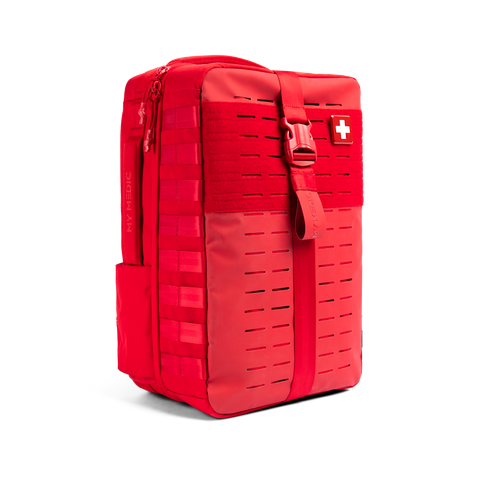 NEW ARRIVALS
NEW ARRIVALS
 BEST SELLERS
BEST SELLERS
 SUPERSKIN™
SUPERSKIN™
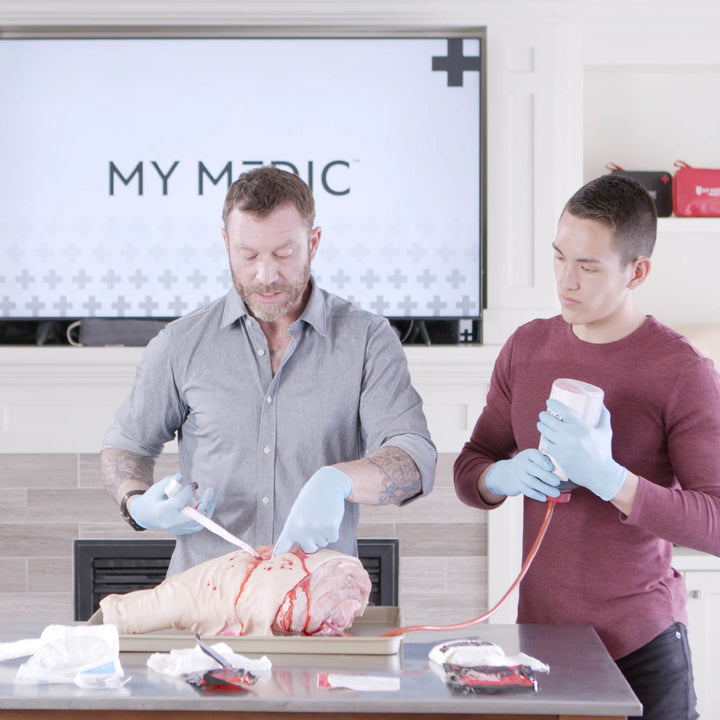 COURSES
COURSES
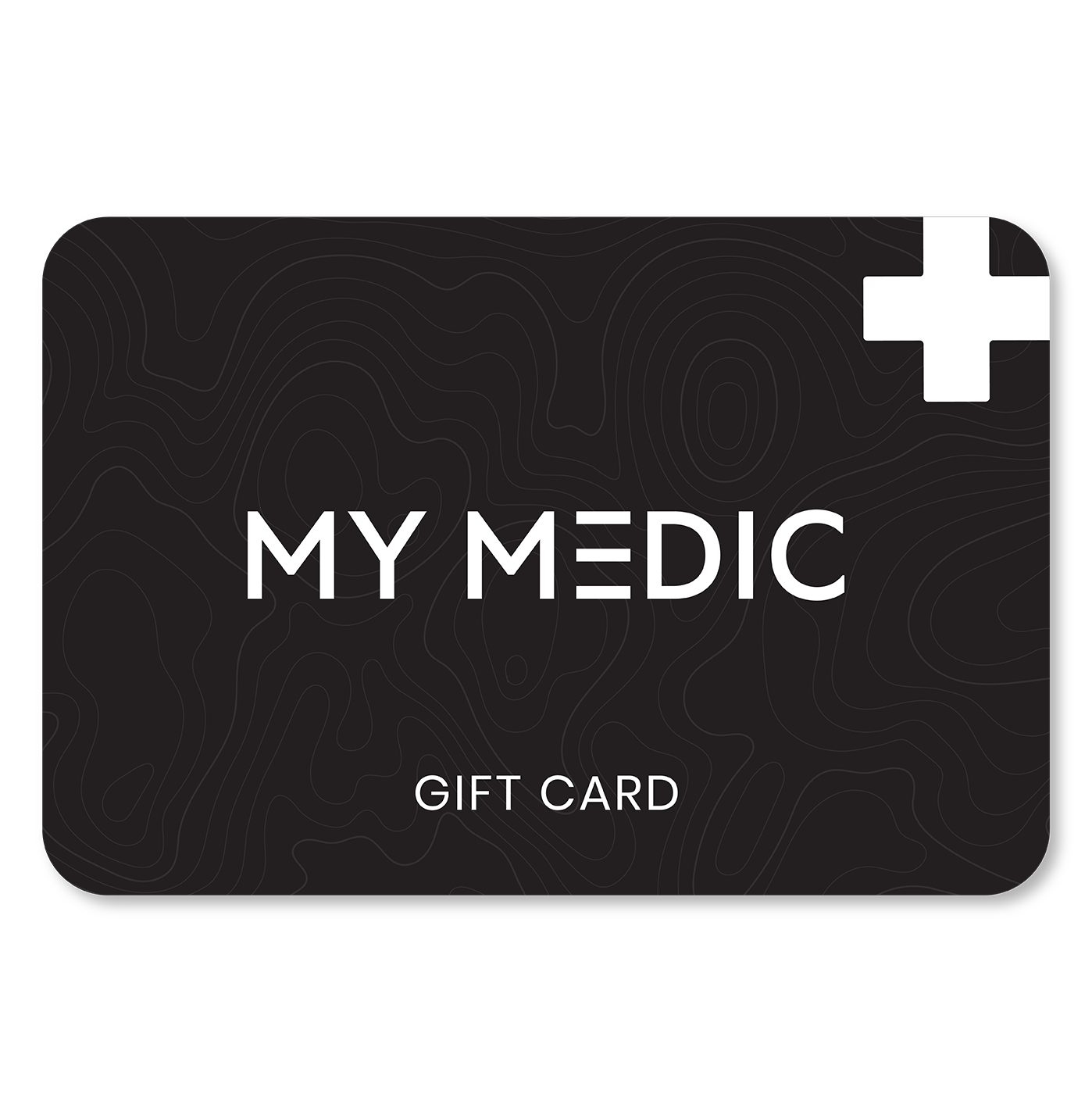 GIFT CARDS
GIFT CARDS
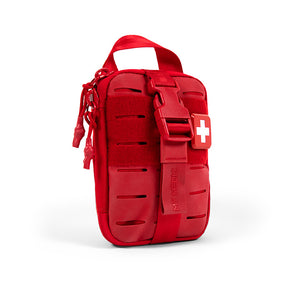 The MyFAK Collection
The MyFAK Collection
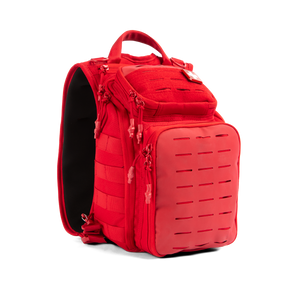 Specialty
Specialty
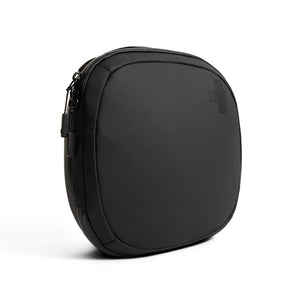 The Ready Collection
The Ready Collection
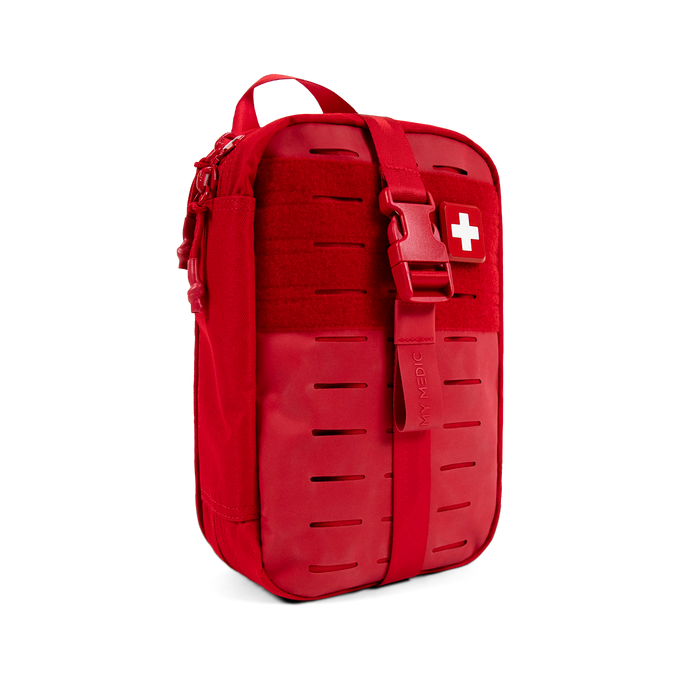
 BLEED
BLEED
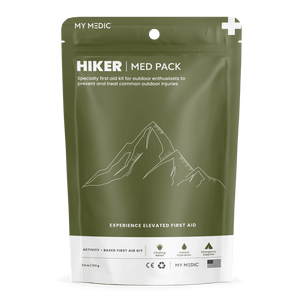 OUTDOOR
OUTDOOR
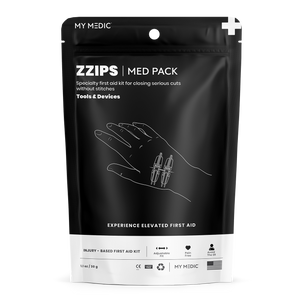 TOOLS & DEVICES
TOOLS & DEVICES
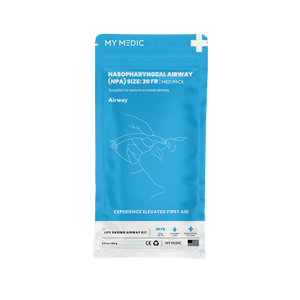 AIRWAY
AIRWAY
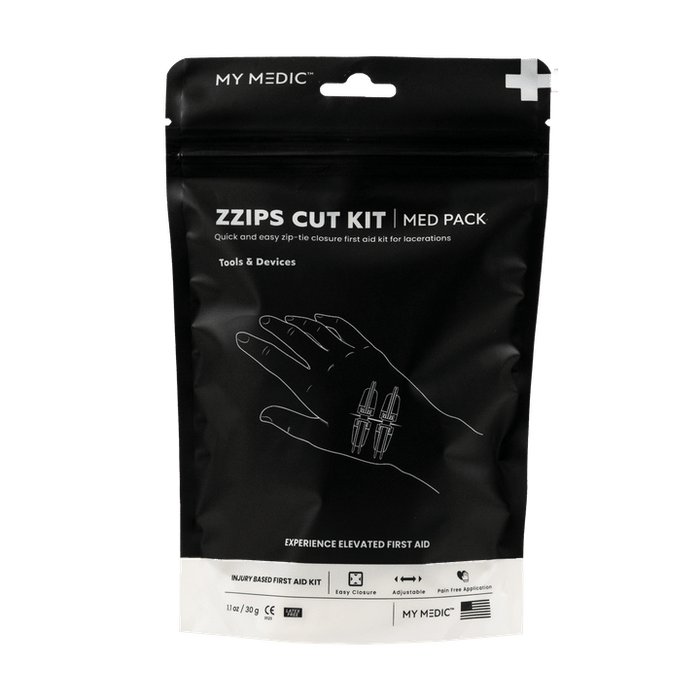
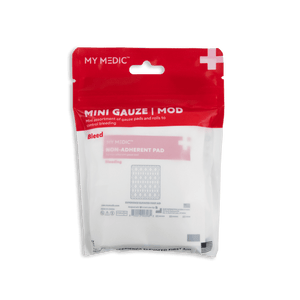 BLEED
BLEED
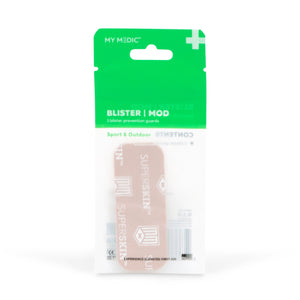 OUTDOOR
OUTDOOR
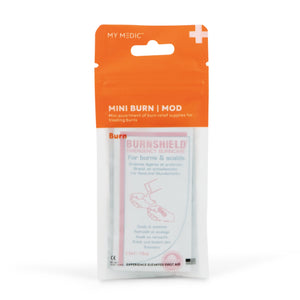 BURN
BURN
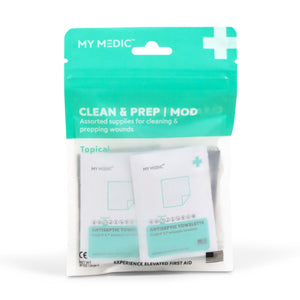 TOPICAL
TOPICAL
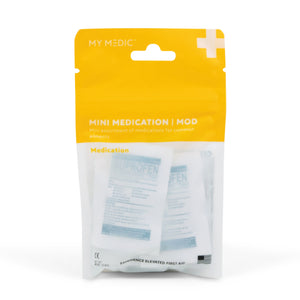 MEDICATION
MEDICATION
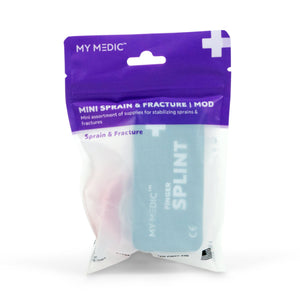 SPRAIN & FRACTURE
SPRAIN & FRACTURE
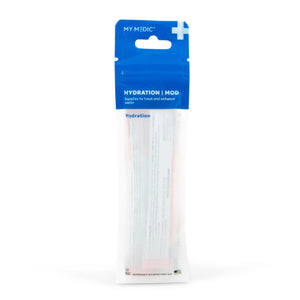 HYDRATION
HYDRATION
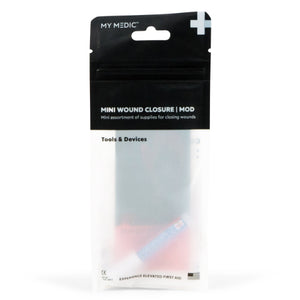 TOOLS & DEVICES
TOOLS & DEVICES
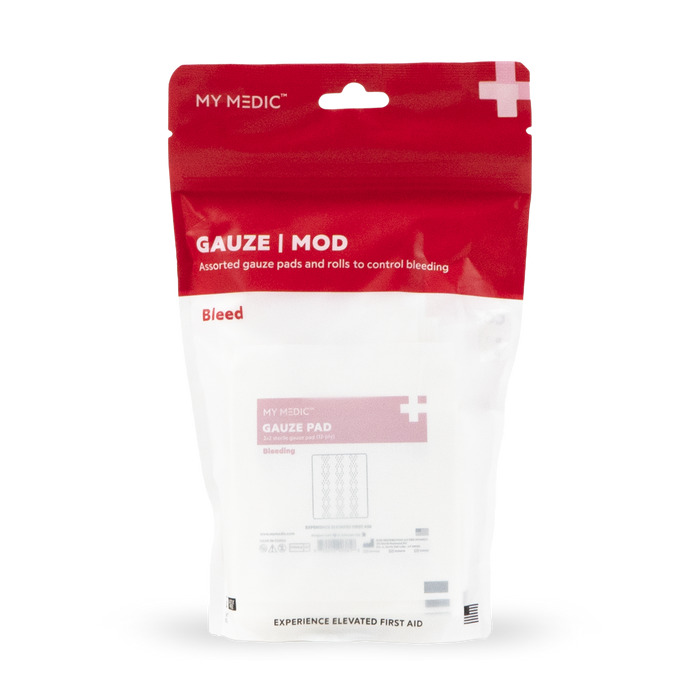
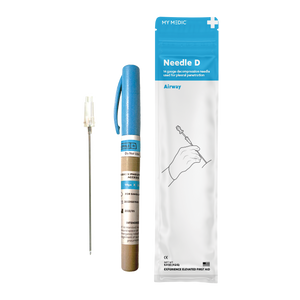 Supply Categories
Supply Categories
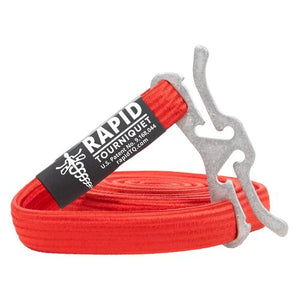 Top Sellers
Top Sellers
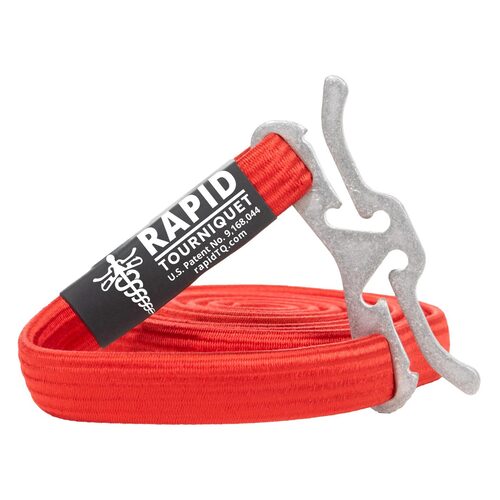





Leave a comment